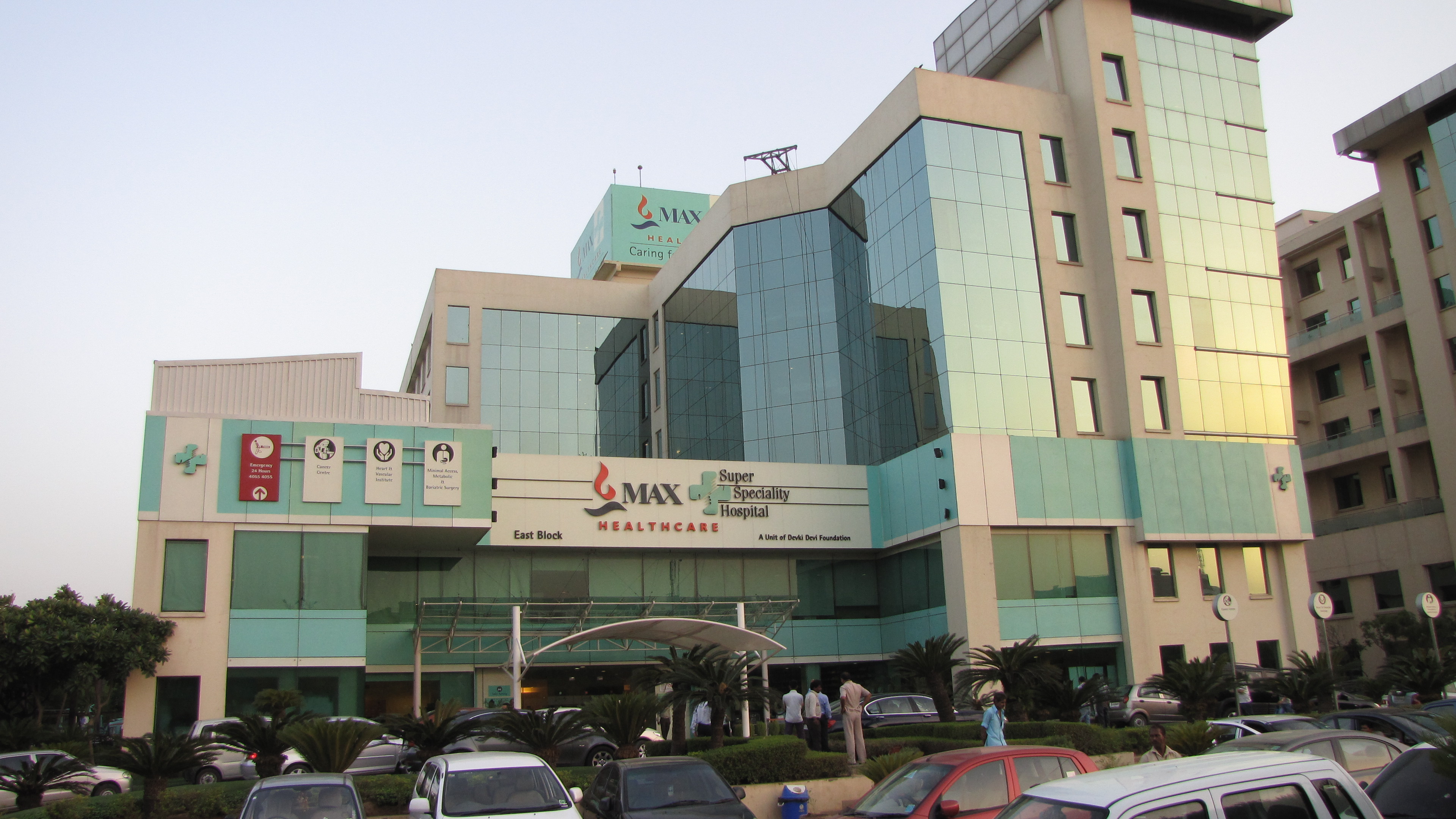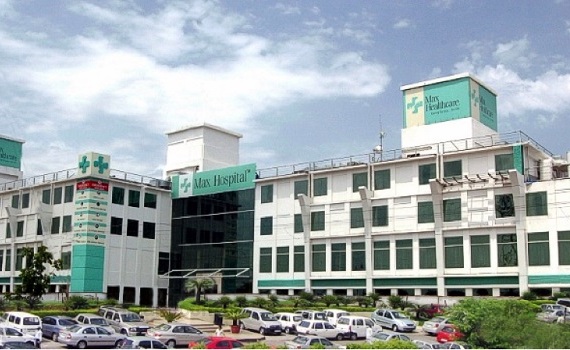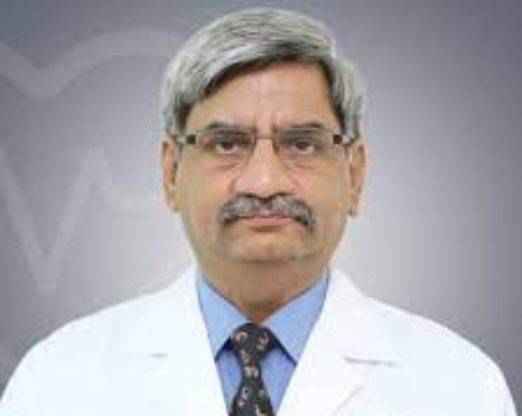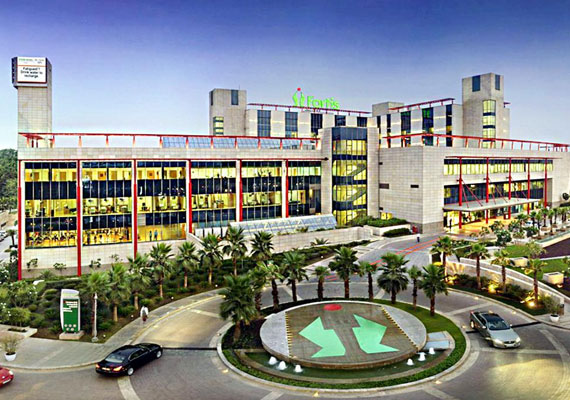
Non-Hodgkin Lymphoma (NHL) Treatment options in india
30 Nov, 2023
 Healthtrip Team
Healthtrip TeamNon-Hodgkin Lymphoma (NHL) is a complex and challenging diagnosis, but with advancements in medical science, there is hope. India, with its
- World-class Medical Facilities
- Renowned Oncologists
- Cost-Effective Care
In this blog post, we will delve into the essential aspects of NHL treatment in India in detail.
Transform Your Beauty, Boost Your Confidence
Find the right cosmetic procedure for your needs.

We specialize in a wide range of cosmetic procedures

Non-Hodgkin Lymphoma (NHL):
Non-Hodgkin Lymphoma is a type of cancer that originates in the lymphatic system, which plays a vital role in the body's immune system. It primarily affects lymphocytes, a type of white blood cell responsible for fighting infections. NHL encompasses a diverse group of lymphomas, each with its unique characteristics, and can occur in various parts of the body.
There are several key points to understand about NHL:
- Types and Subtypes: NHL is not a single disease but a group of related diseases, with over 60 distinct subtypes identified. These subtypes differ in their behavior, prognosis, and response to treatment. Common subtypes include diffuse large B-cell lymphoma (DLBCL), follicular lymphoma, and mantle cell lymphoma, among others.
- Risk Factors: While the exact cause of NHL remains unclear, certain risk factors may increase one's susceptibility. These include a weakened immune system, exposure to certain chemicals or toxins, viral infections (such as Epstein-Barr virus or HIV), and a family history of lymphoma.
- Symptoms: NHL often presents with non-specific symptoms that can vary from person to person. Common symptoms include swollen lymph nodes, persistent fatigue, unexplained weight loss, night sweats, and itching. These symptoms can be mistaken for other conditions, highlighting the importance of early diagnosis through proper medical evaluation.
Diagnosis:
Accurate diagnosis is the cornerstone of NHL management. To determine the specific type and stage of NHL, healthcare professionals employ a range of diagnostic tools and procedures, which include:
- Biopsy: A biopsy involves the removal of a small tissue sample from an affected lymph node, organ, or bone marrow. A pathologist then examines this sample under a microscope to identify cancerous cells and determine the NHL subtype.
- Imaging Scans: Imaging techniques such as CT scans, MRI scans, and PET scans help visualize the extent of the disease, including the involvement of lymph nodes and organs.
- Blood Tests: Blood tests, including a complete blood count (CBC) and specific markers like LDH (lactate dehydrogenase), provide valuable information about the patient's overall health and the presence of NHL.
- Bone Marrow Aspiration and Biopsy: These procedures help assess whether NHL has spread to the bone marrow, a common occurrence in advanced stages of the disease.
- Flow Cytometry: Flow cytometry is a specialized test that can further characterize lymphoma cells based on their surface proteins, aiding in subtype classification.
Accurate diagnosis not only confirms the presence of NHL but also provides critical information about its subtype, stage, and extent of involvement. This information guides treatment decisions and helps healthcare professionals develop a personalized treatment plan tailored to the patient's specific needs.
Most popular procedures in India
Total Hip Replacemen
Upto 80% off
90% Rated
Satisfactory

Total Hip Replacemen
Upto 80% off
90% Rated
Satisfactory

Total Hip Replacemen
Upto 80% off
90% Rated
Satisfactory

ASD Closure
Upto 80% off
90% Rated
Satisfactory

Liver Transplant Sur
Upto 80% off
90% Rated
Satisfactory

Treatment options for NHL in India
1. Chemotherapy:
Chemotherapy is a systemic treatment that uses powerful drugs to target and destroy cancer cells. These drugs interfere with the cell's ability to divide and grow, ultimately leading to cell death.
Chemotherapy is administered in cycles, with each cycle consisting of treatment days followed by rest days to allow the body to recover. The specific chemotherapy regimen is determined based on the patient's NHL subtype, stage, and overall health.
How It's Done: Chemotherapy drugs can be given through various routes:
- Oral: Patients take chemotherapy drugs in the form of pills or capsules.
- Intravenous (IV): The drugs are administered directly into a vein through a needle or catheter.
- Injections: Some chemotherapy drugs are given as injections into the muscle or under the skin.
Chemotherapy aims to shrink tumors, control the spread of cancer, and alleviate symptoms. In some cases, it may be used before other treatments to reduce the size of the tumor or after other treatments to eliminate any remaining cancer cells.
Sgnificant advancement in chemotherapy is the development of more targeted and personalized approaches. Researchers are increasingly using genetic and molecular profiling to identify specific mutations or markers in cancer cells, allowing for the selection of chemotherapy drugs that are more likely to be effective against a patient's specific cancer.
2. Radiation Therapy:
Radiation therapy uses high-energy X-rays or other types of radiation to target and destroy cancer cells. It is a local treatment, meaning it primarily affects the area being treated. Radiation therapy is employed either as a primary treatment or in conjunction with other therapies, depending on the NHL subtype, stage, and location of the cancer.
How It's Done: The process involves the following steps:
- Planning: Radiation oncologists carefully plan the treatment, determining the precise area to target and the appropriate radiation dose.
- Treatment Sessions: Patients receive radiation therapy sessions at a specialized medical facility. The treatment itself is painless and typically lasts only a few minutes.
- Advanced Techniques: India offers advanced radiation therapy techniques, such as proton therapy and stereotactic body radiation therapy (SBRT), which allow for highly targeted treatment while minimizing damage to surrounding healthy tissues.
Advances in radiation therapy include the use of advanced imaging techniques, such as MRI and PET scans, to precisely locate and target cancerous tissue. Additionally, techniques like proton therapy and SBRT continue to
3. Targeted Therapy:
Targeted therapy is a type of treatment that specifically targets molecules or pathways involved in the growth and survival of NHL cells, sparing healthy cells. Targeted therapies are selected based on the NHL subtype and the presence of specific molecular markers identified through diagnostic testing.
How It's Done: Targeted therapy drugs, such as rituximab, ibrutinib, and venetoclax, are administered either intravenously or orally. They work by:
- Blocking specific proteins or receptors on cancer cells.
- Disrupting signaling pathways that promote cancer growth.
- Enhancing the immune system's ability to target cancer cells.
Targeted therapy is highly precise and is often used when conventional chemotherapy may not be as effective or when minimizing side effects is a priority.
The field of targeted therapy has seen ongoing research into novel targeted agents and combination therapies. New drugs and treatment strategies are being developed to target a wider range of molecular pathways involved in cancer growth, enhancing treatment options for NHL patients.
4. Immunotherapy:
Immunotherapy is an innovative treatment approach that harnesses the body's immune system to recognize and attack cancer cells. Immunotherapy, including CAR T-cell therapy, is employed for specific NHL subtypes, particularly in cases of refractory (resistant to treatment) or relapsed disease.
How It's Done:
- Collection of T Cells: In CAR T-cell therapy, the patient's own T cells (a type of immune cell) are collected through a process called leukapheresis.
- Genetic Modification: The collected T cells are then genetically modified in a laboratory setting. This modification involves the introduction of chimeric antigen receptors (CARs) on the surface of T cells. These CARs are designed to target specific proteins or antigens found on NHL cells.
- Infusion:* Once the T cells have been genetically modified to express CARs, they are expanded and then infused back into the patient's bloodstream. These CAR T-cells are now equipped to recognize and bind to NHL cells, initiating an immune response that destroys cancer cells.
Immunotherapy, including CAR T-cell therapy, continues to be a rapidly evolving field. Researchers are working on improving the safety and effectiveness of CAR T-cell therapies, exploring new targets, and expanding their use to a broader range of NHL subtypes. Combination therapies that combine immunotherapy with other treatment modalities are also under investigation.
5. Stem Cell Transplant:
Stem cell transplantation is a procedure designed to replace damaged or cancerous bone marrow with healthy stem cells. Stem cell transplantation is typically considered for specific NHL cases, particularly in instances of aggressive disease or relapse after initial treatment.
How It's Done:
- Conditioning:* Before the transplant, the patient undergoes a conditioning regimen, which may involve high-dose chemotherapy and, in some cases, radiation therapy. This conditioning is intended to eliminate the patient's existing bone marrow and any remaining cancer cells.
- Stem Cell Infusion:* Healthy stem cells are then infused into the patient's bloodstream. These stem cells can be sourced from the patient themselves (autologous transplant) or from a compatible donor (allogeneic transplant). The infused stem cells migrate to the bone marrow and gradually restore healthy blood cell production, including red blood cells, white blood cells, and platelets.
Advances in stem cell transplantation include improved donor selection, reduced toxicity conditioning regimens, and better management of complications after transplantation. Researchers are also exploring alternative sources of stem cells, such as cord blood and haploidentical donors, to expand the availability of this treatment.
6. Precision Medicine:
Precision medicine involves customizing treatment plans based on the genetic and molecular characteristics of the patient's lymphoma. Precision medicine is applied to tailor therapies according to the specific genetic traits of the lymphoma, ensuring a more targeted approach.
How It's Done:
- Genetic and Molecular Profiling: The process begins with genetic and molecular profiling of the patient's lymphoma tumor. This involves analyzing the genetic mutations and molecular alterations unique to the lymphoma cells.
- Treatment Selection: The data from profiling are used to inform treatment decisions. Healthcare providers can then select targeted therapies that precisely address the genetic abnormalities within the lymphoma, increasing the likelihood of treatment success and minimizing side effects.
Advances: Precision medicine is becoming more refined with the integration of artificial intelligence and machine learning to analyze vast datasets of genetic and molecular information. This allows for more accurate identification of treatment options tailored to an individual patient's lymphoma profile.
7. CAR T-cell Therapy:
CAR T-cell therapy, or Chimeric Antigen Receptor T-cell therapy, is an innovative form of immunotherapy that genetically modifies a patient's T cells to target and attack lymphoma cells. CAR T-cell therapy is used primarily for specific NHL subtypes, particularly when other treatments have failed to achieve remission.
How It's Done:
- T Cell Collection: Initially, T cells are collected from the patient through a process known as leukapheresis. This procedure involves the removal of blood, isolation of T cells, and return of the remaining blood components to the patient.
- Genetic Modification: In a specialized laboratory, the collected T cells are genetically engineered to express chimeric antigen receptors (CARs) on their surface. These CARs are designed to target specific proteins or antigens present on the surface of NHL cells.
- CAR T-cell Infusion: The genetically modified CAR T-cells are expanded and then infused back into the patient's bloodstream. Once inside the patient, these CAR T-cells recognize and bind to lymphoma cells, initiating an immune response that leads to the destruction of cancer cells.
Advances: Research in CAR T-cell therapy is ongoing, with efforts focused on enhancing the durability of responses and reducing potential side effects. Novel CAR designs, improved manufacturing processes, and combination therapies are being explored to make CAR T-cell therapy more effective and accessible.
8. Maintenance Therapies:
Maintenance therapies involve the ongoing administration of drugs to prolong remission periods after the completion of initial NHL treatment. Maintenance therapies are typically considered for indolent NHL subtypes, which tend to have a pattern of recurring and remitting disease. They are administered after the initial treatment, especially when the goal is to extend the time without active disease.
How It's Done:
- Drug Administration: Maintenance therapies often involve the use of drugs like rituximab or lenalidomide. These drugs are given to the patient on a scheduled basis, typically over an extended period.
- Suppression of Cancer Growth: The purpose of these drugs is to suppress the growth of any remaining cancer cells that may not have been completely eliminated during the initial treatment. By doing so, maintenance therapies aim to prolong the remission period and improve overall survival.
Advances: Research in maintenance therapies aims to optimize the duration and schedule of drug administration to maximize benefits while minimizing side effects. Clinical trials are ongoing to assess the long-term effectiveness of maintenance therapies in preventing disease recurrence.
Best Hospitals for Non-Hodgkin Lymphoma (NHL) Treatment in India
1. Max Super Speciality Hospital, Saket, Delhi:

- Location: Press Enclave Road, Mandir Marg, Saket, New Delhi, Delhi 110017, India
- Max Smart Super Speciality Hospital, Saket, is a 250-bed facility affiliated with Gujarmal Modi Hospital & Research Centre for Medical Sciences. It boasts 12 high-end modular operation theatres, an emergency resuscitation and observation unit, 72 critical care beds, 18 HDU beds, a dedicated endoscopy unit, and an advanced dialysis unit. The hospital is equipped with cutting-edge medical technology, including a 256 Slice CT Angio, 3.0 Tesla digital broadband MRI, Cath Labs with electrophysiology navigation, and a flat panel C-Arm detector.
- Max Smart Super Speciality Hospital offers a wide range of medical services in various disciplines, including Cardiac Sciences, Orthopaedics, Urology, Neurology, Pediatrics, Obstetrics, and Gynecology. It is recognized as one of the best hospitals in Delhi.
- The hospital has a team of over 300 leading specialist doctors and a dedicated nursing staff. They utilize state-of-the-art medical tools to provide the highest standard of medical care to patients, from admission to discharge.
- Max Smart Super Speciality Hospital, Saket, is a regional hub for complex medical procedures, including neurovascular interventions, targeted cancer treatments, heart surgeries, orthopedic surgeries, liver and kidney transplants, and fertility treatments.
- Location: Sector - 44, Opposite HUDA City Centre, Gurgaon, Haryana - 122002, India
- Fortis Memorial Research Institute (FMRI) is a multi-super specialty, quaternary care hospital.
- It boasts an international faculty, reputed clinicians, super-sub-specialists, and specialty nurses.
- The hospital is known for utilizing cutting-edge technology to provide advanced medical care.
- FMRI aims to be the 'Mecca of Healthcare' for Asia Pacific and beyond.
- The hospital is situated on a spacious 11-acre campus and offers 1000 beds.
- It is often referred to as the 'Next Generation Hospital' and is built on the pillars of Talent, Technology, Infrastructure, and Service.
- FMRI has undergone a thorough on-site review of the quality and safety of care provided, and it is committed to continuously meeting rigorous international standards.
- FMRI is unmatched in the fields of Neurosciences, Oncology, Renal Sciences, Orthopedics, Cardiac Sciences, Obstetrics, and Gynecology.
- It has solidified its position as one of the top hospitals in Gurgaon by leveraging advanced technology and top clinicians to deliver high-quality healthcare.
- Fortis Memorial Research Institute is a flagship hospital of Fortis Healthcare, one of the leading healthcare providers in the country.
- Fortis Memorial Research Institute in Gurgaon is known for its exceptional healthcare services, advanced technology, and a wide range of medical specialties. It is committed to providing top-notch medical care and adhering to international standards of quality and safety.

- Location: Situated in Gurgaon, India
- Size: Located on a sprawling 9-acre campus.
- Bed Capacity: Over 400 beds.
- Accreditations: The first JCI (Joint Commission International) and NABH (National Accreditation Board for Hospitals & Healthcare Providers) accredited hospital in Gurgaon.
- Advanced Infrastructure: Designed as one of the most advanced hospitals in India.
- Medical Expertise: Provides a wide range of advanced medical and surgical interventions.
- Comprehensive Services: Offers a comprehensive mix of inpatient and outpatient services.
- Technology: Equipped with modern technology, enhancing healthcare standards.
- Research-Oriented Practices: Medical practices and procedures are research-oriented and benchmarked against global standards.
- Recognized Excellence: Received the 'Asia Pacific Hand Hygiene Excellence Award' by WHO in 2011.
- Specialties: Excelling in various medical fields, including cardiology, CTVS (Cardiothoracic and Vascular Surgery), neurology, neurosurgery, neuro-interventional, oncology, surgical oncology, orthopedics, spine surgery, organ transplants, general surgery, emergency care, and women & child care.
4. Max Gurgaon

- Max Hospital, Gurgaon, located in B Block, Sushant Lok 1, Near Huda City Centre, India, is a leading healthcare facility.
- The hospital has over 70+ beds and has treated over 5 lakh patients.
- It specializes in 35 fields, including Cardiac Sciences, Minimal Access and Laparoscopic Surgery, Neurosciences, Urology, Orthopaedics, Aesthetics, and Reconstructive Surgery, and Nephrology.
- Max Hospital is equipped with 11 ICU beds, 3 PICUs, 5 NICUs, and 4 Cardiac Care beds.
- It offers services like endoscopy departments, radiology and pathology diagnostics, and more.
- The medical team includes 155 doctors and 143 nursing staff.
- State-of-the-art technology, high-end modular Operation Theatres, NABL accredited Max Lab, and NABH accreditation ensure top-notch care.
- The hospital has received multiple awards and industry accreditations.
- For inquiries or more information, contact Max Hospital, Gurgaon.
When seeking NHL treatment in India, patients can have confidence in the expertise and state-of-the-art facilities available, making it a viable option for individuals from around the world seeking quality care.
- Blood Disorders and Bone Marrow Transplant
- Consults at: Fortis Memorial Research Institute, Gurgaon, and Fortis Hospital, Noida
- Achievements: Pioneered stem cell transplant in multiple sclerosis in India.
- Experience: Over 15 years of medical expertise.
- Transplants: Successfully completed 400+ transplants.
- Vision: Established an integrated center of excellence in Hematology and Stem Cell Transplantation at Fortis Memorial Research Institute.
- Recognition: Renowned hematologist in Delhi and Gurgaon.
- Specialties: Benign Hematology, Hemato-oncology, Pediatric Hemato-oncology, Transplants (including haploidentical), Hematopathology, Molecular Hematology.
2. Dr Vikas Dua

- Position: Additional Director & Head of Department - Blood Disorders and Bone Marrow Transplant.
- Consultation Locations: Fortis Memorial Research Institute, Gurgaon and Fortis Hospital, Noida.
- Experience: Over 21 years in the field.
- Number of Surgeries: More than 200 pediatric transplants.
- Pediatric Hemato Oncology
- Bone Marrow Transplant
- Notable Achievements:
- Excellent outcomes in stem cell transplants, particularly in Pediatric haploidentical transplants.
- Conducted unique and rare transplants in India.:
- Benign Pediatric Hematology
- Hemato-oncology
- Matched sibling, unrelated, and Pediatric haploidentical transplants.
3. Dr Jalaj Baxi

- Position: Senior Consultant - Medical Oncology & Surgical Oncology.
- Consultation Location: Fortis Hospital, Noida.
- Experience: Over 24 years in the field.
- Number of Surgeries: More than 10,000.
- Educational and Professional Background:
- Extensive teaching experience of over 14 years.
- Formerly a Professor in Surgery & Head at Manipal College of Medical Sciences, Nepal, and at Mahatma Gandhi National Institute of Medical Sciences, Jaipur.
- Focuses on cancer treatment with a priority on patient safety.
- Aims for quick recovery, minimal or no disfiguration, and prompt return to normal life.
- Recognized as one of the most reputed names in onco surgery.
Commence on a journey of hope and advanced care with HealthTrip in India for your blood cancer treatment. Experience cutting-edge combination therapies, expert oncologists, the best hospitals,and personalized care, all within state-of-the-art facilities. Choose HealthTrip for an affordable, comprehensive treatment experience tailored to your unique needs. Start your path to recovery today with India’s leading healthcare specialists.
Common Side Effects:
- Chemotherapy: Nausea, fatigue, hair loss, anemia, infection risk.
- Radiation Therapy: Skin irritation, fatigue, swallowing issues.
- Targeted Therapy: Diarrhea, skin rash, blood pressure changes.
- Immunotherapy: Flu-like symptoms, fatigue, skin reactions.
- Stem Cell Transplant: Nausea, fatigue, infection risk, graft-versus-host disease.
Coping Strategies:
- Medications for symptom management.
- Balanced diet and hydration.
- Adequate rest, gentle exercise.
- Proper skincare for skin-related side effects.
- Seek emotional support when needed.
Navigating NHL treatment in India involves a combination of medical expertise, emotional support, and financial planning. With the right medical team and resources, patients can embark on their journey towards recovery with confidence. Remember that this blog post serves as a general guide. For personalized advice and treatment plans, always consult with medical professionals. Non-Hodgkin Lymphoma can be challenging, but with the right support and care, there is hope for a brighter future.
Wellness Treatments
Give yourself the time to relax
Lowest Prices Guaranteed!

Lowest Prices Guaranteed!









